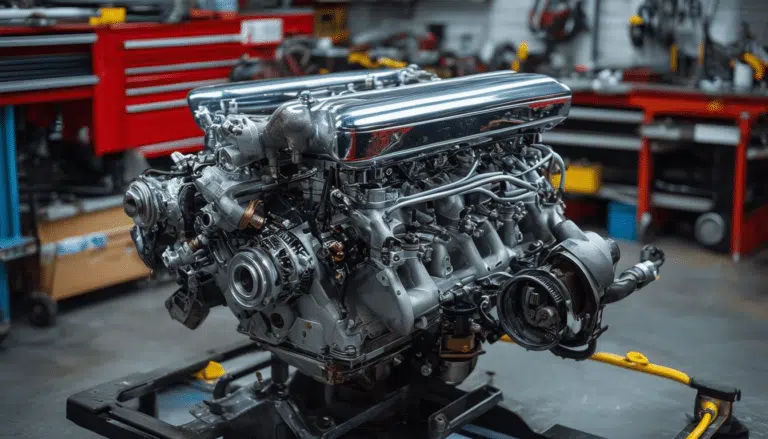The best driving practices to save gasoline
Fuel efficiency has become a fundamental concern for many drivers, both for economic reasons and environmental impact. Adopting the best driving practices not only helps reduce monthly fuel expenses but also contributes to a more sustainable environment. Implementing strategies such as choosing efficient routes and properly maintaining the vehicle can make a significant difference. Additionally, road education plays a crucial role, as responsible and conscious driving can lead to significant savings in fuel consumption.
Saving fuel is not only beneficial for your wallet but also contributes to a healthier environment. Applying efficient driving practices can help you reduce your vehicle’s fuel consumption. In this article, we will explore the best strategies to maximize fuel efficiency while driving.
Use of navigation systems
Navigation systems like Google Maps can be your best allies on the road. You can activate features that suggest the most efficient routes, avoiding traffic and reducing driving time. This not only saves fuel but also minimizes wear and tear on the vehicle.
Regular vehicle maintenance
Regular maintenance is essential for the good functioning of your car. Make sure to check and change the engine oil, as well as keep the air filters clean. A well-maintained engine runs efficiently, resulting in lower fuel consumption.
Tire check
Properly inflated tires are crucial for efficient driving. A deflated tire can increase rolling resistance, consuming more fuel. Check tire pressure every month and ensure they are properly aligned.
Efficient driving strategies
Your driving style has a significant impact on fuel consumption. Avoid sudden acceleration and practice smooth driving with gradual transitions in acceleration and braking. This not only helps save fuel but also extends the lifespan of the brakes and other vehicle parts.
Avoid unnecessary idling
The idling of the engine consumes fuel unnecessarily. If you stop for more than 30 seconds, it is advisable to turn off the engine. This is especially important at traffic lights or during prolonged stops.
Consulting specialized advice
It is always helpful to be informed about specialized advice to improve fuel efficiency. Research and recommendations from experts can guide you in practices you may not be aware of. For example, German drivers may have secrets that allow them to save up to 40 cents per liter of gasoline, which you can discover here: Learn more.
Selecting the right gasoline
Choosing the right gasoline can also influence your car’s performance. It is indicated that some gasoline types have additives that can improve engine efficiency, thereby reducing fuel consumption. Make sure to read your vehicle manufacturer’s suggestions regarding the ideal type of gasoline.
Reducing vehicle weight
Removing unnecessary weight from your vehicle can help improve fuel efficiency. Any items you don’t need, such as things stored in the trunk, should be removed. A lighter vehicle requires less energy to move, which translates to lower gasoline expenses.
Road education and awareness
The impact of road education is significant on fuel consumption. Driving calmly, being aware of your surroundings, and obeying traffic signals can help you avoid sudden braking and unnecessary acceleration, thus improving your fuel performance. Investing time in learning about responsible driving habits can lead to considerable long-term savings.
Incorporating technology into fuel saving
Today, there are various applications that can help you plan routes and optimize fuel consumption. These tools allow you to know which gas stations are the cheapest in your area, as well as calculate your consumption and expenses. Using technology can be a great ally in your fuel efficiency efforts.
Efficient driving is essential to maximize fuel savings and minimize associated gasoline costs. Implementing simple changes in our driving habits can result in significant savings. For example, maintaining a moderate speed not only reduces fuel consumption but also promotes safer driving. When traveling at high speeds, gasoline expenses increase considerably, as the engine works harder. The 20% rule indicates that by lowering your speed by 20%, you can reduce fuel consumption by the same proportion.
Another essential aspect is vehicle maintenance. A well-cared-for car consumes less gasoline. Regular checks of the engine, exhaust system, and tire alignment are practices that not only extend the vehicle’s lifespan but also optimize its fuel performance. Additionally, maintaining proper tire pressure is crucial, as under-inflated tires can increase gasoline consumption.
Navigation systems can also be valuable tools in our quest for savings. Applications like Google Maps provide optimized routes that help avoid congestion and traffic, contributing to more efficient fuel use. Planning routes in advance can make a difference in fuel expenses during a trip.
Finally, road education plays a fundamental role. Knowing and applying the best practices for driving not only reduces gasoline expenses but also benefits the environment. By being more aware of how we drive, we contribute to a more sustainable and economical future for everyone.




